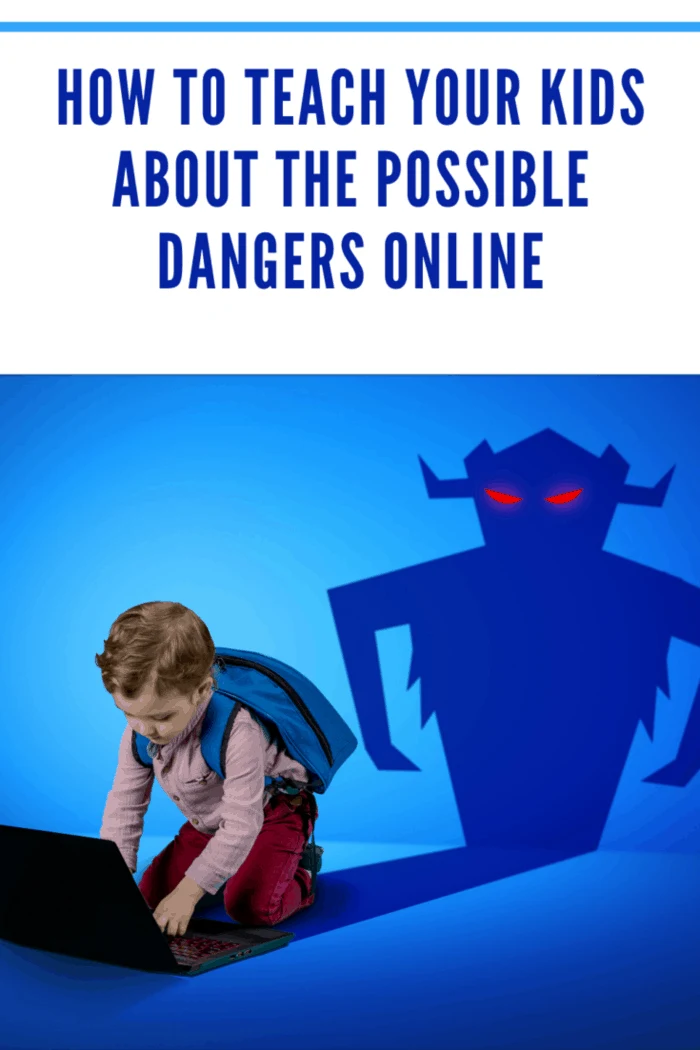Younger generations are tech-savvy – they play online games, follow their favorite celebrities online, and search for pretty much anything they find interesting. The internet is a magical place full of fun things to do. While some kids are confident they know everything about dangers on the web, others rarely pay attention to possible online threats.
We, as parents, have to teach them about everything they could come across in cyberspace. It includes identity theft, predators, and cybercriminals. As soon as your kid starts spending hours and hours online, it is time to educate them on what to do and how to behave on the internet. Your goal should be to help them make the right decisions when necessary.

The Basic Rules
Limiting the time your kids spend on the internet is one of the basic rules. Indeed, that might be a bit hard now since the internet is essential for attending online classes, doing school work, and hanging out with friends. Luckily, you can modify that rule a bit by asking your kid to spend their free time online in the living room or sitting next to a parent.
It can help you monitor their online activity and see which websites they frequent. Operating systems can do a similar thing while at work or doing chores. For instance, most operating systems acknowledge younger users and have unique settings created just for them, reminding Microsoft. You can restrict the online content and ban certain websites in just a couple of clicks. These features have built-in timers that log screen time too.
Social Media
Kids are not allowed on social media, but this won’t stop them from making a profile. Even though many social media websites have an age limit, youngsters are clever enough to bypass this rule. So you have to talk to them about social media and the possible dangers as soon as possible. It would be best to start with the basics – the online friends.
Predators often use social media to befriend younger kids. They pretend they are the same age and slowly start interacting with them. Therefore, your young one shouldn’t add anyone they don’t know in real life to their friends’ list, says Care. Encourage interacting with their classmates and family members while they are on social media.
Cyberbullying can be another potential problem for kids on social media. Teach your children how to recognize problematic behavior online and tell them they can speak to you if they are cyberbullied. This issue can become more severe unless you stop it right away.
Online Gaming
Online games are essentially another place where your kids can communicate with other users. Games are becoming more social every day. Kids can communicate with other users via voice or chat. While it might seem harmless, dangers lurk within online game communities. Cybercriminals do sometimes use it as a place to get personal or financial information from players.
Tell your kids not to share anything with other players. It includes their username, password, financial information, etc. Also, warn them not to click on any links they get via chat, especially if they are sent by users they don’t know. These links might be a phishing attempt explains In Care Technologies. Another great idea is to use VPN to hide your IP. Even if your young one stays alert and doesn’t reveal information to strangers, they could learn about your location via IP address.
Make Use of Technology
Online scams are widespread on the internet, and most of us can easily recognize them. However, kids are the perfect targets for cybercriminals since they might not know how to spot something fake. Therefore, sit down and explain that a potential scam often sounds too good to be true.
Set up a couple of rules like they can’t shop online independently or that clicking on unknown links is forbidden. You could also install a VPN suggests Nordvpn.com on all the devices your kids use. It will run in the background, ensuring that all the data they send or receive is encrypted. If someone tries to gain access to your data, VPN can make things harder for them.
